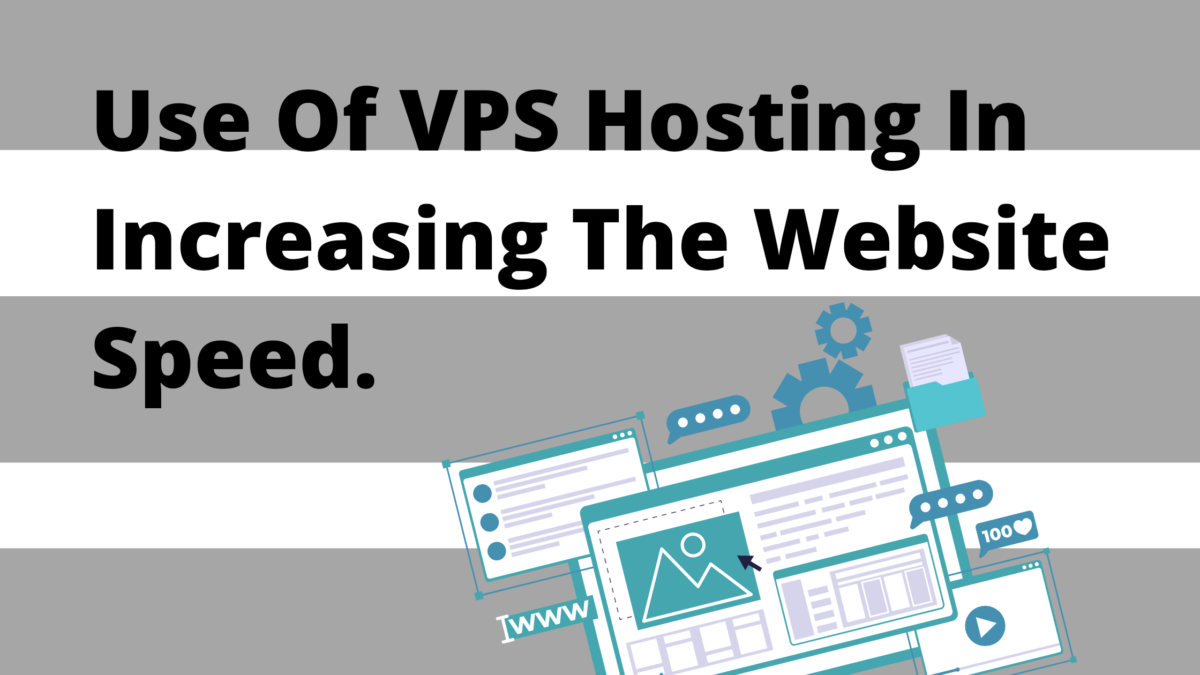The website page speed is one of the factors that may be important when deciding to switch to VPS hosting. In general, a VPS provides a faster website page speed, which is beneficial for User Experience (UX) and Search Engine Optimization (SEO), as your site becomes more popular. You can also check for Cheap Web Hosting In India.
A VPS is more expensive than shared hosting, but the cost is usually offset by the benefits, especially since VPS prices are now approaching those of shared hosting.
In this article, we’ll look at what page loading speed is, why it’s important, what factors influence it, and how VPS hosting can help.
What is page loading speed, and why is it important?
Page loading speed is simply the time it takes for a page to fully load. This speed is critical first and foremost when discussing User Experience and, later, Search Engine Optimization of the site. Time is money, and potential customers will be annoyed if they have to wait for a web page to load.
As a result, most users consider 1-2 seconds to be the most comfortable page loading speed. If the time exceeds 3 seconds, users are likely to abandon the website and look for another. They may eventually share their negative experiences with their friends, making the site even less popular.
As a result, websites must be fast in order to meet SEO requirements. According to Google, the recommended speed for web pages is around 3 seconds; an eCommerce website’s load speed should be even faster – less than two seconds.
The effect of virtual private servers on website loading speed
VPSs, as opposed to shared hosting, provide better circumstances for a web page to load faster. A VPS does not ensure it; other critical requirements must be met. For example, the web host is responsible for initially supplying servers that reply rapidly. Other critical moments include VPS configuration and site design.
But first, let’s look at why a VPS is much more likely to provide a decent page load speed for your website.
The allocation of resources on a VPS is the cause of this. Given that multiple customers’ VPSs are housed on the same parent server, a VPS and shared hosting are somewhat comparable. Contrary to shared hosting, each VPS, working as a separate machine, is given resources that are not shared, thus its activities are unaffected by those of other VPSs.
As a result, until one of the websites housed on the server experiences traffic spikes, shared hosting and VPS might function more or less similarly in terms of page load speed. When using shared hosting, not only the offending website may experience sluggishness or even crashes, but also the other users of the service.
Less SEO, fewer clients, lower sales, and decreased success could be the results of this, as were the negative effects previously mentioned. With a VPS, the scenario is different since your VPS’s performance will remain independently consistent regardless of what happens to its “neighbours” on the parental server.
Other elements that impact your website’s performance
In addition to traffic, a number of other factors may also have an impact on how quickly a page loads. These may be the technical reasons for poor web design first and foremost.
These include:
- excessively resource-intensive online apps;
- an abundance of features;
- repeated requests for third-party features; the use of large amounts of media, etc.
In other situations, the server may be to blame if it is overloaded, out-of-date, too old, or poorly organised. Additionally, the danger could originate outside, from nefarious activities or unexpected traffic jams.
What should you do if a page doesn’t load quickly?
The first thing you can do is run a website speed test if your site has a slow page load speed and you are unsure of the specific cause. Use specialized tools, such as WebPageTest, to accomplish this. These tools can reveal precisely what is slowing down your website’s page load time.
Following this research, it will be simpler for you to decide which actions to take to improve the functionality of your website.
These could be-
- Lowering time-to-first-byte, which is influenced by things like server performance, DNS provider speed, etc.;
- updating script versions;
- acquiring a VPS; and optimizing the media — as already said, large media files like images or videos can slow down the pace at which your site loads.
The success of your website depends on how quickly pages load because this influences customer content, the website’s SEO optimization, and ultimately its popularity. Renting a VPS is an effective strategy to invest in it because it may have tremendous returns. If this article persuaded you to do so, visit hostzealot.com to find the best VPS hosting option for your company. We hope that you have understood the importance of VPS hosting in your website.
